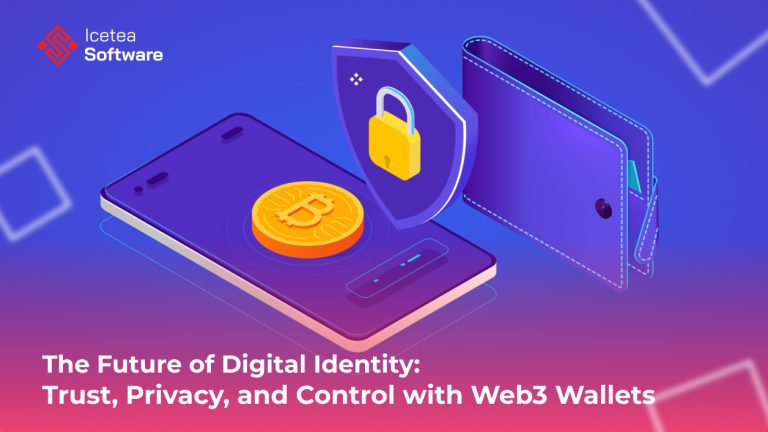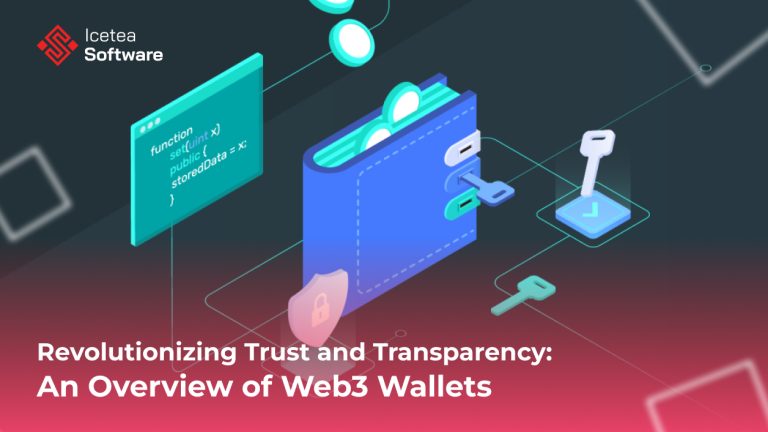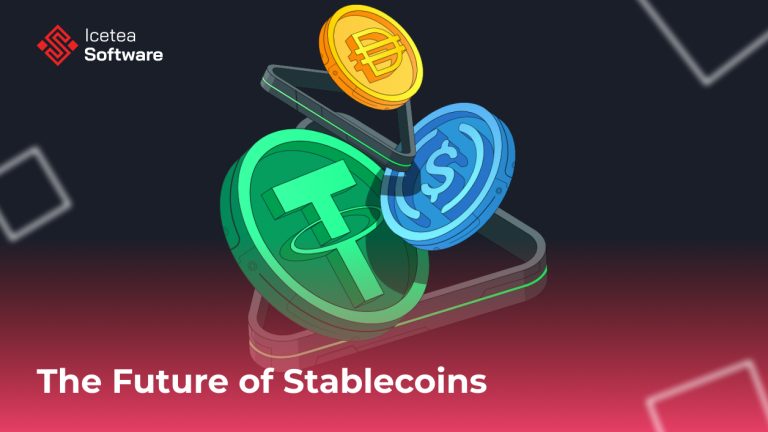White-Label Products and Solutions: A Smart Business Strategy
In today’s competitive market, businesses are always on the lookout for innovative ways to cut costs, speed up product launches, and diversify their product lines. One strategy that has gained considerable popularity is white labeling. In this post, we’ll explore what white-label products and solutions are, discuss their applications, review their advantages and drawbacks, and…
In today’s competitive market, businesses are always on the lookout for innovative ways to cut costs, speed up product launches, and diversify their product lines. One strategy that has gained considerable popularity is white labeling. In this post, we’ll explore what white-label products and solutions are, discuss their applications, review their advantages and drawbacks, and explain when and why you should consider using them.
What Is a White-Label Solution?
At its core, a white-label solution is a pre-built product or service developed by one company that another company rebrands and sells as its own. Instead of investing substantial time and resources into creating something from scratch, you can license an existing solution, customize its branding (think logos, colors, and design elements), and offer it under your own brand name.
White labeling means that you can build a product or service brand without owning the underlying product. Someone else handles all the technical or manufacturing work, while you focus on branding, marketing, and scaling your business.
What Is White Labeling in Tech?
White labeling is a business model in which a company licenses a product or service from another firm and then rebrands it as if it were developed in-house. In the tech sector, this means that instead of investing significant time and resources into developing software, mobile applications, or even blockchain platforms from the ground up, you can purchase an existing solution and tailor its appearance to match your brand identity.
For example, a web development agency might use a white-label SaaS platform that provides robust features—such as email marketing, CRM, or analytics—customizing its interface with their own logo and color scheme before offering it to their clients. The underlying technology remains the same, but from the end user’s perspective, it’s a solution built exclusively by the agency.
The power of white labeling lies in its simplicity: you don’t need to be an expert in every technical field to offer cutting-edge solutions. Whether it’s blockchain for secure transactions, SaaS for scalable software delivery, or mobile app frameworks that get you to market quickly, white labeling lets you leverage the expertise of specialized providers.
What Isn’t White Labeling?
Before diving further into the benefits and applications, it’s important to delineate what white labeling is not. To qualify as white labeling in tech, the following conditions must be met:
- You’re Selling Someone Else’s Product: The core technology or product is developed by a third party.
- Rebranding Under Your Own Label: The product is then rebranded—meaning the logo, colors, and other brand elements are replaced with yours, so the end customer perceives it as your creation.
White labeling is not the same as:
- A Public Partnership: For instance, if a mobile app prominently credits its underlying technology or development partner, that’s not white labeling. In true white labeling, the rebranded product should not reveal its original source.
- Using Third-Party Tools for Internal Operations: If you use an external service like a payment gateway (e.g., Stripe) or live chat software solely for running your business, that isn’t white labeling. In such cases, you are not reselling the product under your brand but simply using it as a tool for operations.
In essence, white labeling is all about offering a complete, customer-facing solution that appears entirely your own, even though you’re relying on external expertise for its core functionality.
How White Labeling Fuels the Tech Industry
White labeling has been a catalyst for rapid innovation and growth in the tech industry. When a company can adopt an existing solution and rebrand it, they can add new features and services much faster than if they had to develop the technology internally. This approach is particularly valuable in areas where building technology from scratch would be prohibitively expensive or time-consuming.
Speed and Efficiency in Software Development
For many software companies, developing a new feature can require months of development, rigorous testing, and continuous maintenance. White-label solutions allow companies to bypass these challenges. For example, a startup wanting to offer a secure messaging feature within its mobile app might choose a white-label solution that already includes end-to-end encryption and user authentication protocols. By rebranding and integrating this solution, the company can offer a robust feature almost immediately—accelerating time-to-market and ensuring competitive advantage.
Leveraging Blockchain for Security and Transparency
Blockchain technology is increasingly being integrated into white-label solutions. Imagine a fintech company that wants to offer secure digital identity verification or tokenized loyalty programs. Building a blockchain platform in-house can be complex and resource-intensive. Instead, companies can license a white-label blockchain solution that comes with pre-built smart contracts, secure data storage, and compliance features. This not only speeds up deployment but also adds a layer of security and transparency that is critical for customer trust. Every transaction recorded on an immutable ledger reassures users that their data is secure and that the system is resistant to tampering.
Expanding Mobile App Capabilities
Mobile apps have become essential in today’s digital ecosystem. However, developing a high-quality mobile app involves substantial technical expertise and time. White-label mobile app platforms allow businesses to launch sophisticated, feature-rich apps with minimal development time. Whether it’s a retail app that integrates e-commerce, a live chat customer service app, or an on-demand service platform, white labeling can help companies quickly roll out a mobile solution under their own brand. For example, a furniture retailer might license a white-label mobile app that uses augmented reality (AR) to let customers visualize furniture in their own space—an advanced feature that would otherwise require a dedicated development team.
SaaS: The Backbone of Modern Tech Solutions
Software-as-a-Service (SaaS) platforms are another major area where white-labeling shines. With SaaS, companies can subscribe to a cloud-based software solution that they can rebrand and offer as their own. This model is popular among digital marketing agencies, CRM providers, and data analytics companies. By using a white-label SaaS solution, businesses can avoid the high costs and long development cycles associated with building proprietary software, allowing them to focus on customization, customer acquisition, and scaling their operations.
The Advantages of White-Label Tech Solutions
When done right, white labeling offers significant advantages that enable businesses to scale quickly and effectively. Here are the main benefits:
1. Cost-Effectiveness
Building a state-of-the-art product from scratch—especially one incorporating blockchain, AI, or mobile technologies—can be prohibitively expensive. White-label solutions dramatically reduce development and production costs, allowing you to allocate funds to other strategic areas such as marketing and customer support.
2. Rapid Time-to-Market
Speed is critical in the tech industry. White-label solutions let you bypass the lengthy development process, allowing you to launch new products or features within weeks instead of months or years. This quick deployment can be the difference between capturing early market share and falling behind competitors.
3. Access to Expertise and Advanced Technology
By partnering with specialized white-label providers, you gain access to advanced technologies and industry expertise that your company may not possess in-house. Whether it’s sophisticated blockchain platforms, cutting-edge SaaS applications, or high-performance mobile app frameworks, you can offer top-tier products without having to master the underlying technology yourself.
4. Focus on Core Competencies
Outsourcing the technical aspects of product development allows you to concentrate on what you do best—developing your brand, creating compelling marketing campaigns, and providing excellent customer service. This focus on core competencies can lead to a stronger, more differentiated brand in the marketplace.
5. Scalability and Flexibility
White-label solutions are designed to grow with your business. As your customer base expands, these platforms can easily scale to handle increased traffic, new features, and evolving market demands. Moreover, many white-label platforms offer customization options that let you adapt the product to your specific needs, ensuring it remains relevant as your business evolves.
6. Reduced Risk
Launching a new product always carries risk. By using a white-label solution that is already market-proven, you reduce the uncertainty associated with product development. The white-label approach allows you to test new ideas in the market with minimal risk and invest further only after confirming demand.
When to Embrace White-Label Tech
If you’re contemplating launching a new digital product or adding a core feature to your existing offerings, white labeling should be high on your list of options. Here’s when it makes the most sense:
- Limited Resources:
For startups and small businesses, the financial and time investments required for in-house development may be unfeasible. White labeling offers an affordable alternative to quickly launch quality products.
- Rapid Market Entry:
In highly competitive sectors, being first can secure crucial market share. White-label solutions allow you to deploy products quickly, gaining an early advantage over competitors.
- Diversification of Offerings:
If you’re looking to expand your product lineup or add new features—such as integrating blockchain for enhanced security or launching a mobile app to improve customer engagement—white labeling can help you achieve this without diverting significant resources from your core operations.
- Focus on Branding:
When your competitive edge lies in your brand and customer experience, white labeling lets you outsource the technical complexities while you invest in marketing and customer service.
- Access to Advanced Technologies:
Leveraging white-label solutions, particularly those that incorporate blockchain, SaaS, and mobile app capabilities, provides you access to cutting-edge technology without needing to become an expert in those areas.
Final Thoughts
White-label tech solutions empower businesses to rapidly launch and scale advanced digital products without the heavy costs and risks of in-house development. By rebranding proven platforms—whether for SaaS, mobile apps, or blockchain-powered services—you can focus on building a strong brand and engaging your customers. Despite some limitations in customization and reliance on third-party providers, white labeling offers a cost-effective, fast, and flexible way to drive innovation and stay competitive in today’s fast-paced tech landscape.





